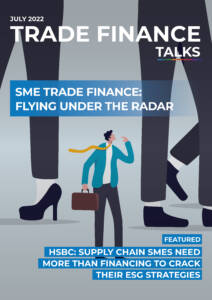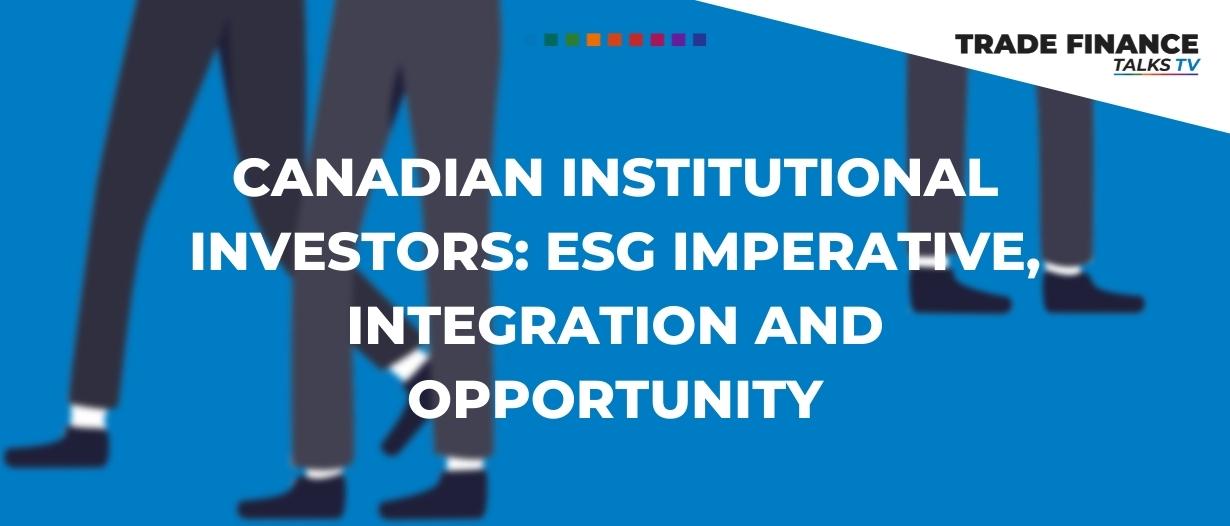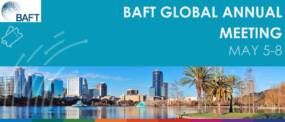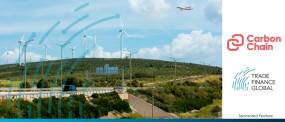This article is co-authored by Cynthia Shaw-Pereira of BNY Mellon Global Risk Solutions and Mathieu Pacheco of CIBC Mellon.
Environmental, social and governance (ESG) investment practices have been rising in the consciousness of investors and market stakeholders for a number of years.
The increased awareness has focused on several different areas, such as; corporate governance, global and domestic pledges and achieving carbon emissions targets.
Further aspects of note are; investors’ acknowledgement of diversity, equity, shareholder engagement, indigenous perspectives, inclusion, human capital, workforce and more.
An increasing array of institutional and individual investors are also mobilising around considering ESG factors in investment decisions.
According to the 2020 Canadian RI Trends Report, there were $3.2 trillion in responsible investment assets under management (AUM) in Canada, with a 48% growth over a two-year period. This represents 61.8% of Canada’s investment industry.
Meanwhile, Canadian investors are becoming more particular about how they deploy their capital, delivering returns with ESG factors being a key consideration.
As organisations evaluate their investment allocations, investment management, performance/compliance monitoring and operational efforts in the years ahead, more opportunities will arise to align their purpose with what they do.
This will be joined by the pressure of increasing amounts of data correlating value and metrics around the incorporation of ESG factors.
Indeed, investors’ rapidly evolving attitudes and explorations of ESG have taken on a macro impact.
The ESG Imperative is driving change, not only in the way organisations go about their business, but also in the way a company defines itself and thinks about its own role in the world.
Notably, Canada is becoming a locus for global ESG momentum. The North American office of the International Sustainability Standards Board (ISSB) being located in Montreal, further cementing the local hub as an ESG centre.
Regionally, a number of ESG commitments have been issued by large asset owners and managers over the last few years.
In October 2021, Canadian investors representing $5.5 trillion in assets under management—including investment fund managers, asset owners, and asset management divisions at all five of Canada’s major banks and lending institutions–issued an “unprecedented” call for climate accountability in the corporate sector.
Facilitated by the Responsible Investment Association, the Canadian Investor Statement on Climate Change calls for a need to accelerate the transition towards a net-zero economy.

Innovations facilitating ESG measures
Canadian market participants are driving forward with an array of innovations to achieve their goals.
For example, TELUS issued Canada’s first sustainability-linked bond, raising $750 million.
The national telecommunications company committed to reducing its greenhouse gas emissions by 46% from 2019 levels by 2030, or else increasing the interest payable by 1.00% per annum.
Likewise, in March 2022, the Canadian federal government issued its first green bond, raising $5 billion.
The Office of the Superintendent of Financial Institutions (OSFI) and the Bank of Canada (BoC) echoed this sentiment in their pilot project entitled, ‘Using Scenario Analysis to Assess Climate Transition Risk.’
As stated in OSFI’s press release, the pilot helped Canada’s financial sector improve its ability to analyse economic and financial risks related to climate change.
According to the 2021 Ontario Budget, the Ontario Securities Commission (OSC) will begin policy work on ESG disclosure to inform further regulatory consultation.
Elsewhere, the Canadian Securities Association recently closed its comment period for National Instrument 51-107 Disclosure of climate-related matters.
The proposed instrument introduces disclosure requirements regarding climate-related matters for reporting issuers (other than investment funds).
According to the BoC’s Financial System Survey highlights, respondents listed climate change and ESG as the top developments they have started monitoring within the past year.
This is consistent with the increasing influence of climate change considerations on investment decisions, as mentioned in the 2021 Financial System Review.

Barriers to integrating ESG policies
Both regionally and globally, institutional investors are looking for ways to integrate unstructured data, as well as connect it to multiple sources, and derive their own scores–similar to creating their own benchmark to evaluate ESG impact.
As more firms consider how to incorporate ESG into their everyday processes, they are faced with the challenge of determining which sources of ESG information best align with their investment approach and workflows.
According to the Chartered Financial Analyst Institute and United Nations Principles for Responsible Investment, the lack of standards and visibility around ESG data verification within investment portfolios creates barriers to ESG integration into investment processes.
The lack of standards can also lead to claims of ‘greenwashing’ or ‘social washing’, which impacts trust, credibility, and, in turn, expose the public to potential harm.
The need to create a foundation for trust—and shared definitions against which to test it—is a critical focus area for industry working groups like the International Sustainability Standards Board.
Investors, stakeholders, regulators, service providers, and more, continue to work toward a shared basis for the measurement of ESG investment outcomes.
Many institutional investors are at tipping point, with the value proposition on ESG continuing to rapidly change and develop.
As more organisations consider how to incorporate ESG into their everyday processes, they will face challenges in determining which sources of ESG best align with their investment approach.
About the Authors

Cynthia Shaw-Pereira is Director and Head of Client Solutions Design for BNY Mellon Global Risk Solutions. Cynthia is responsible for building client-centric data, performance and risk measurement solutions for sophisticated institutional investors across North America.
Cynthia’s specific areas of focus include Environmental, Social and Governance performance and compliance oversight, navigating data complexities across multiple asset classes and geographies, and supporting clients as they navigate data and technology needs and develop their overall data strategy goals and implementation roadmaps.
Cynthia represents our asset servicing and digital enterprise at Canada’s Responsible Investment Association (RIA) and participates in the RIA’s Canadian Responsible Investment Working Group, at which asset owners, asset managers, insurance companies and other industry stakeholders collaboratively explore responsible investment topics prevalent in Canada.
She is a frequent speaker at industry conferences and events on topics related to performance and risk analytics, ESG and responsible investing, and is a regular guest on CIBC Mellon’s Industry Perspectives podcast series.

Mathieu Pacheco is Relationship Executive at CIBC Mellon based in Montreal and is responsible for large, sophisticated asset owner and asset manager clients in Eastern Canada. Mathieu is tasked with partnering with clients, sharing best practices, and helping clients grow their business by identifying industry trends. Mathieu has more than 20 years of experience in global custody, performance analytics and operations management.
Read the latest issue of Trade Finance Talks, July 2022

 Australia
Australia Hong Kong
Hong Kong Japan
Japan Singapore
Singapore United Arab Emirates
United Arab Emirates United States
United States France
France Germany
Germany Ireland
Ireland Netherlands
Netherlands United Kingdom
United Kingdom














Comments are closed.